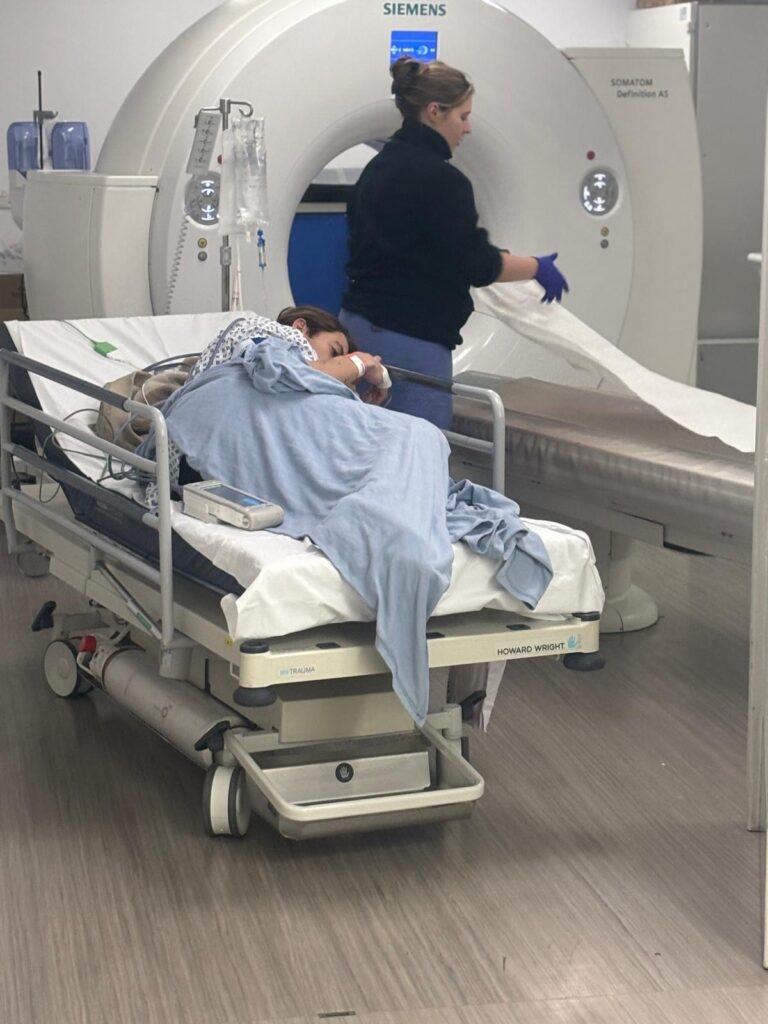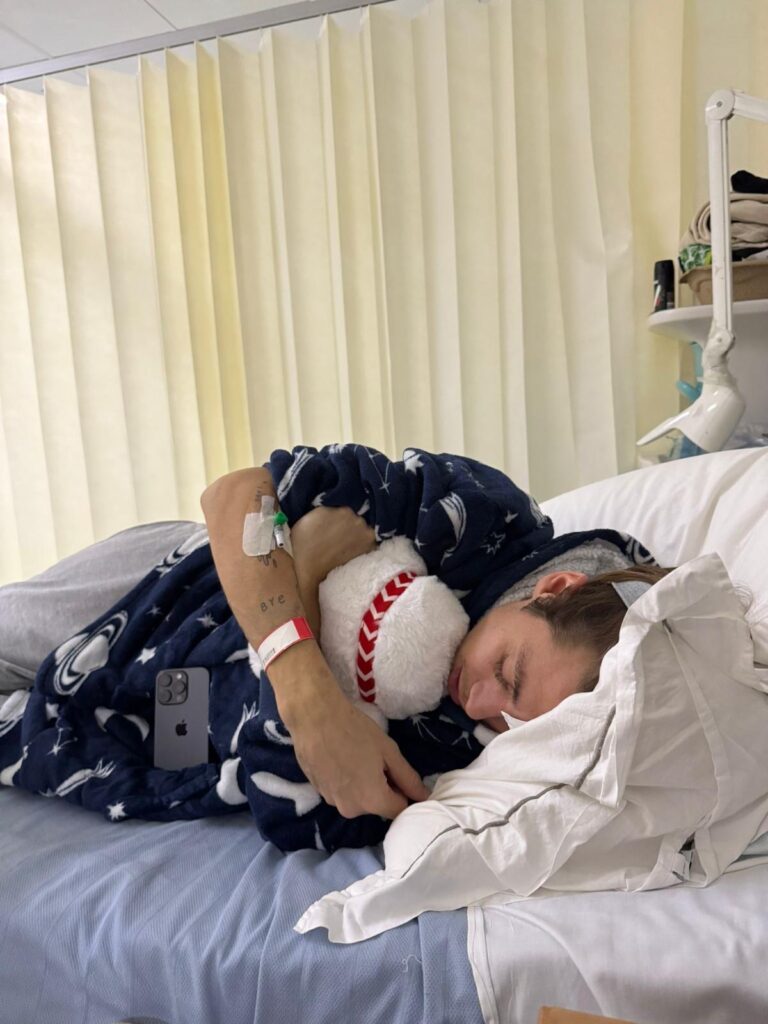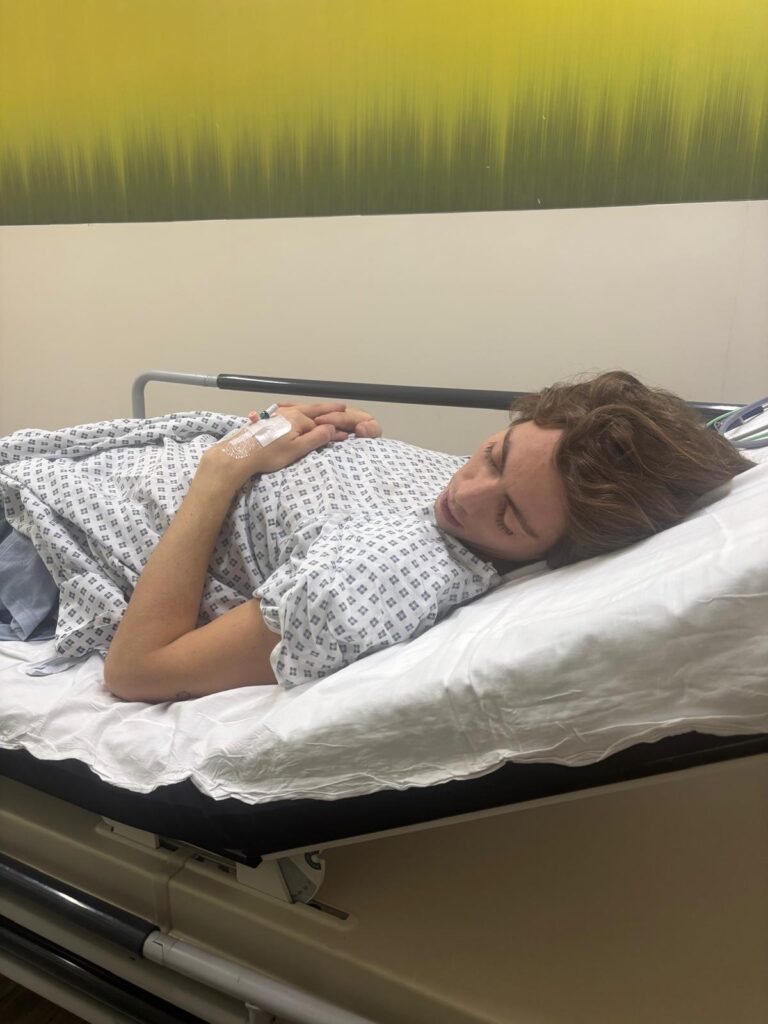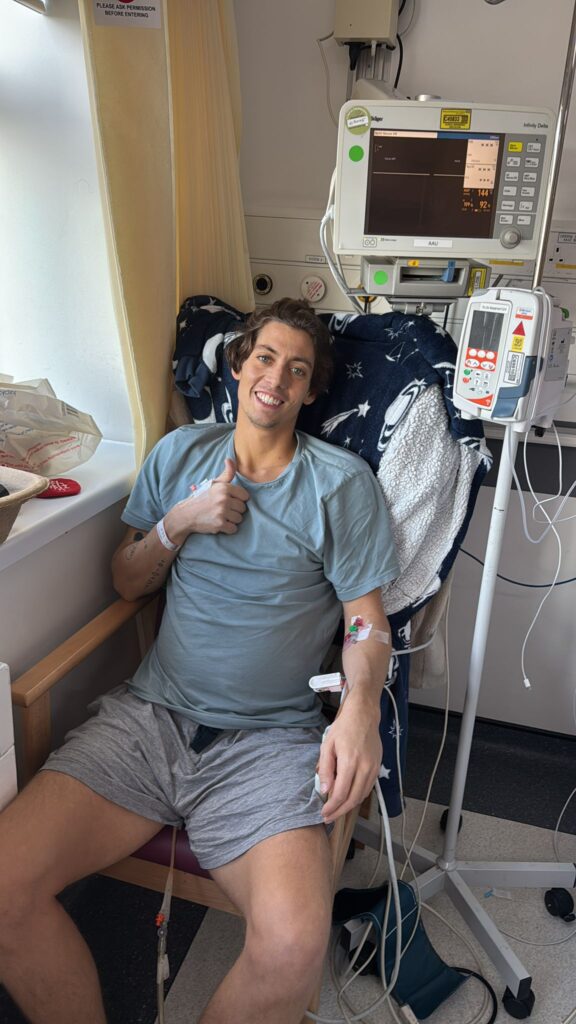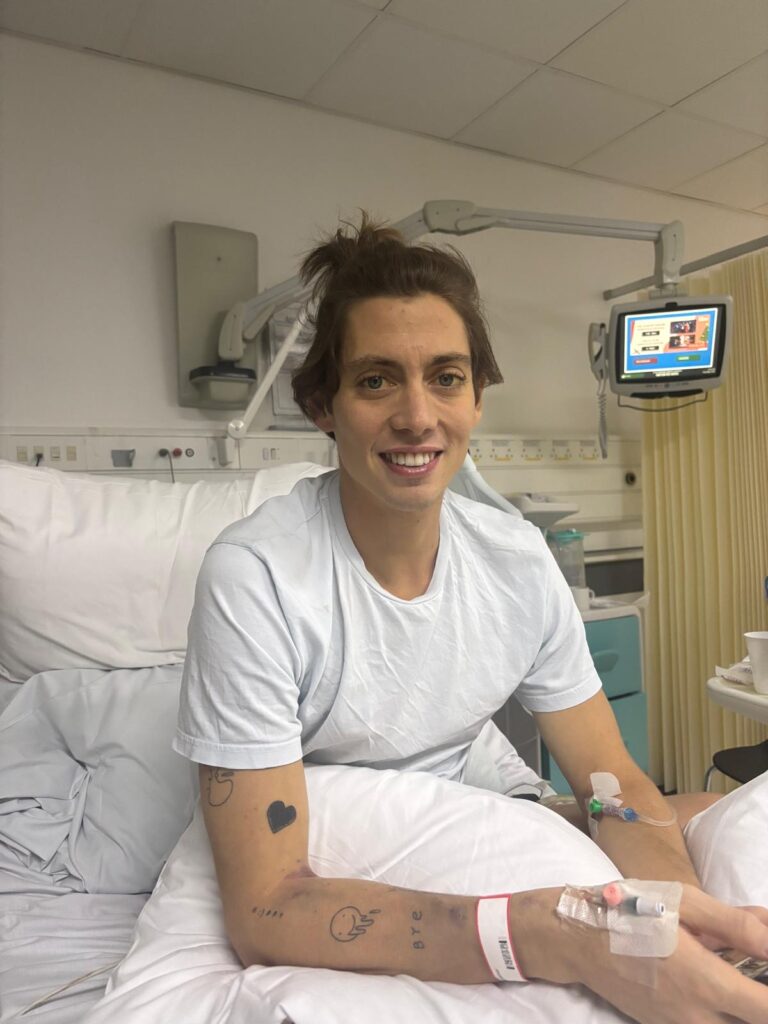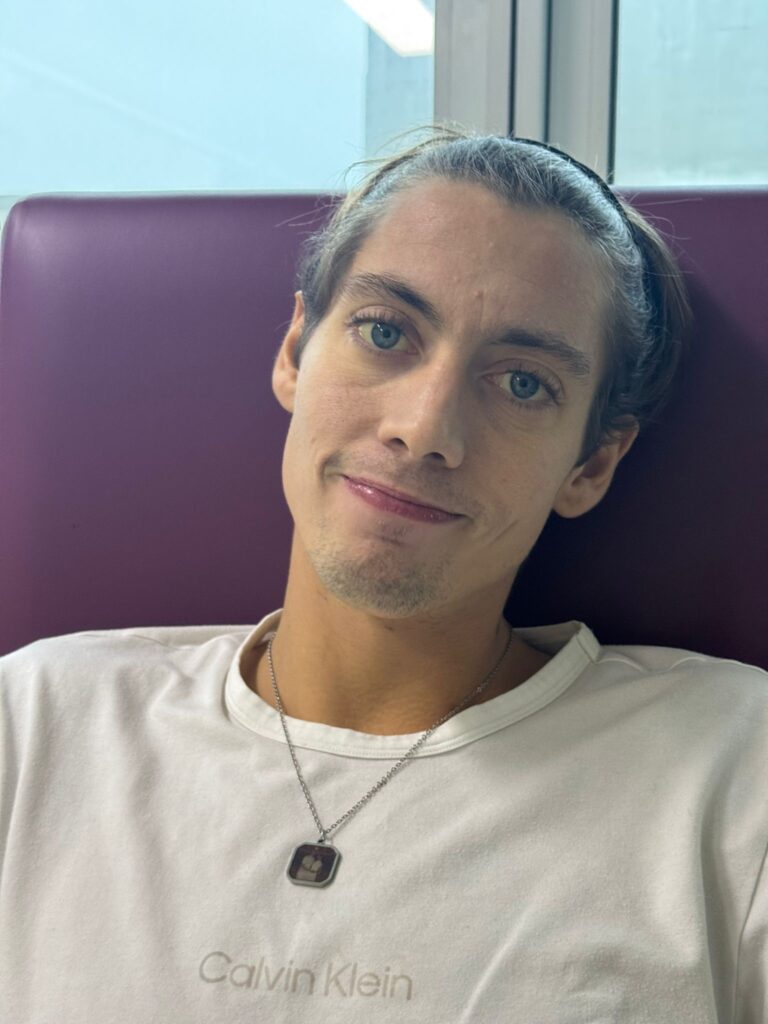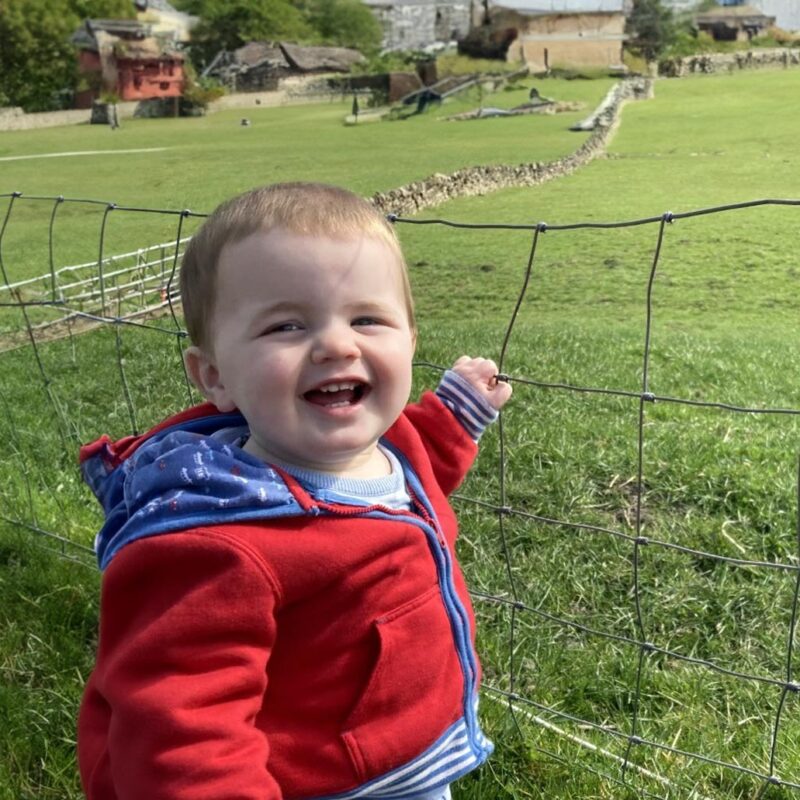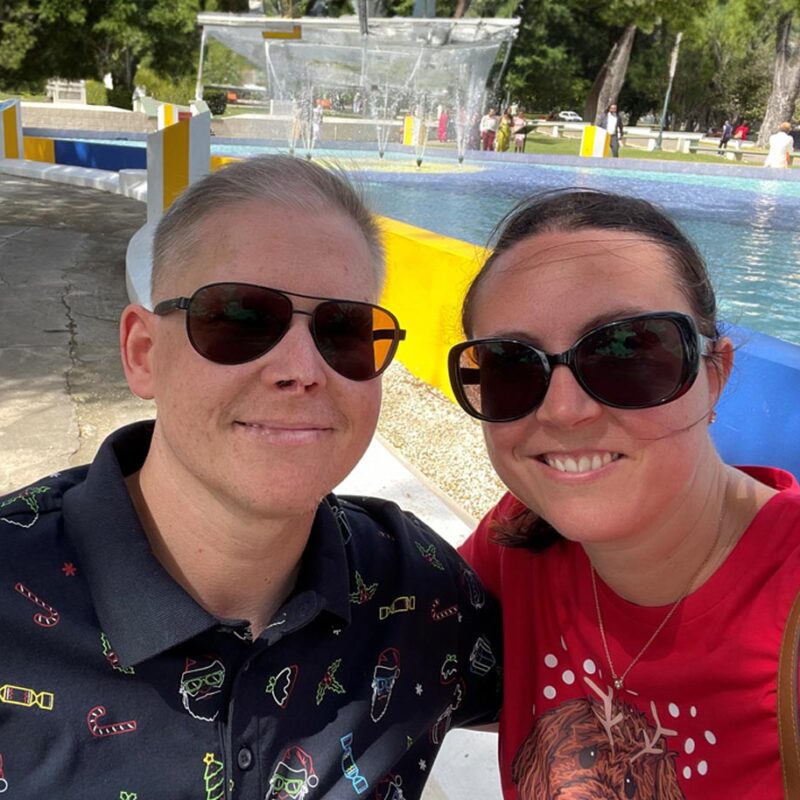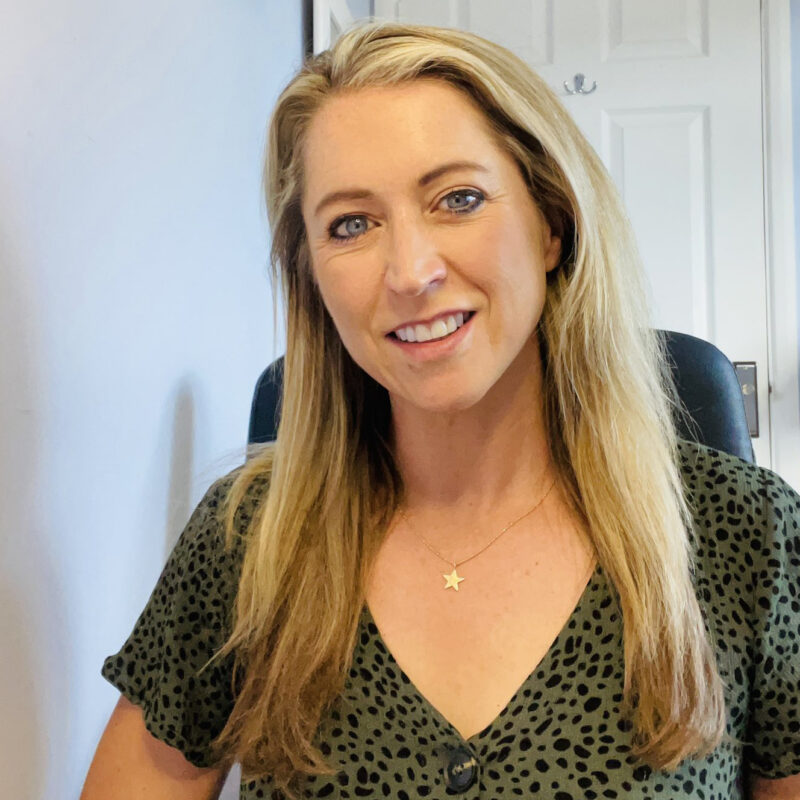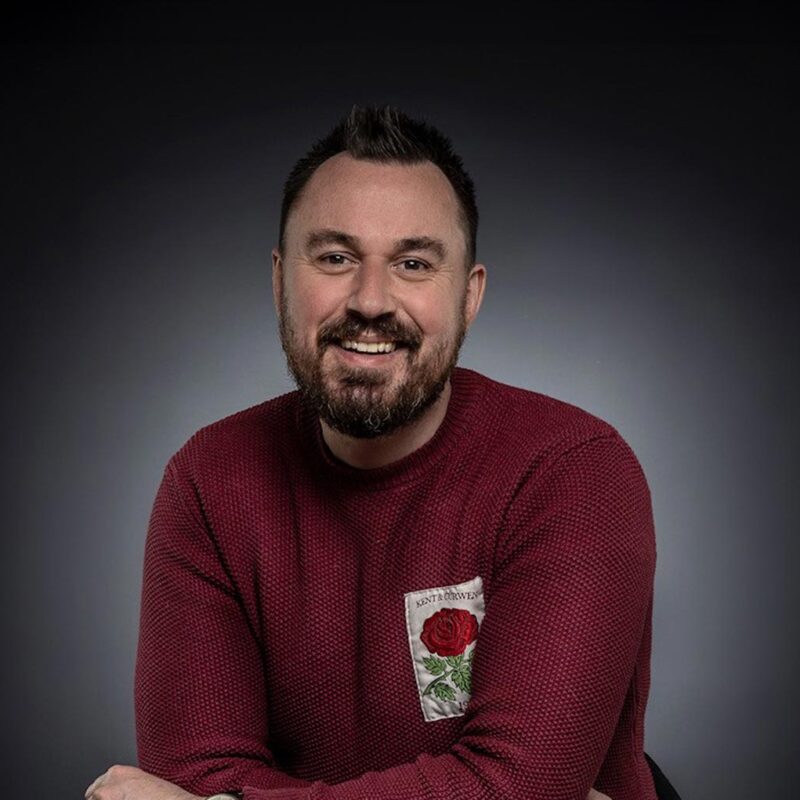Made in Chelsea star Sam Vanderpump is no stranger to drama – but nothing could have prepared him for the terrifying ordeal he faced in December 2024. Just days after recovering from flu and an asthma attack, Sam deteriorated rapidly and was rushed to hospital, where he was diagnosed with sepsis.
Now, the UK Sepsis Trust ambassador is using his platform to raise awareness of the condition that nearly claimed his life – and urging others to ask one simple question: “Could it be sepsis?”
At the time of his illness, Sam was fit, active and cycling up to 20 kilometres a day. “I’d like to have thought of myself as perfectly healthy,” Sam said. Despite a genetic liver and kidney condition monitored annually by King’s College Hospital – something he’d never admitted publicly before his sepsis – he hadn’t previously experienced any major health issues.
In early December, he fell ill with the flu and spent a couple of days in hospital following a severe asthma attack. “It was the worst my asthma had ever hit me,” Sam said. “But nothing life-threatening – I thought I was on the road to recovery.”
However, his symptoms lingered. “For the next ten days, I was complaining of back pain and flu-like symptoms I just couldn’t shake,” Sam said. “It was very peculiar. I kept saying it was crazy how I couldn’t kick this flu.”
A turning point came during a Christmas shopping trip with his then-girlfriend, now fiancee Alice. “I couldn’t stop drinking water – I downed a litre in under an hour and my lips were still dry. I said to Alice: ‘I just can’t quench my thirst. Can we go home? I don’t feel too great.’”
From that point on, Sam’s condition worsened rapidly. “I was taking loads of codeine for the back pain, and by Monday morning I wasn’t making any sense. Alice thought I’d overdosed.” She called Sam’s mum, and together they poured his medication away and called an ambulance.
When he arrived at hospital, doctors were initially unsure why he was there – until his bloodwork came back. “My CRP was in the 400s,” Sam said. “The doctor turned white and said: ‘You’re going into liver and kidney failure.’ I broke down.”
Sam was rushed to the resuscitation unit. “They said my liver and kidney weren’t functioning properly and there was a chance I’d be put into intensive care,” he said. “Thankfully, we were just in time.”
Doctors didn’t yet know the cause of infection, but they acted fast. “They gave me the strongest antibiotics and antifungal medicine they had,” Sam said. “The first 24 hours I wasn’t responding. But by hour 48, I started to turn a corner.”
His resting heart rate had spiked to 130 bpm – more than double his usual rate – and he was on oxygen for the first few days. “It was the scariest moment of my life,” Sam said. “By day three I asked the consultant if I was out of the woods. She looked at me and said, ‘No, you’re really not.’ That stuck with me.”
After seven days, he was discharged just before Christmas – earlier than planned, due to a spike in Covid-19 cases. “The infection hadn’t fully gone, but they were worried I’d catch Covid in hospital and couldn’t fight it,” Sam said.
The physical recovery took Sam months – and the emotional toll was just as intense. “Re-entering the normal world was the scariest part,” Sam said. “You come out of hospital and everyone thinks you’re fine. But you don’t feel fine. I was constantly over-analysing my body. I had this health anxiety, like PTSD – you’re terrified it’ll happen again and you won’t see it coming.”
Sam’s experience isn’t unique – one in five deaths globally are linked to sepsis – but like many, he had never heard of it before. “We had no idea what to look out for,” Sam said. “Now I know: back pain, dehydration, delirium – all key symptoms I had. If we’d gone to hospital two days earlier, maybe it wouldn’t have been as scary.”
In the months that followed, Sam was readmitted twice with new infections – but both were thankfully caught early. “We knew what to look out for,” he said. “It never got as bad because we spotted the signs straight away. That’s the difference early detection makes.”
Support from his loved ones – including Alice, his mum, grandma, brother, and aunt – played a vital role in his recovery. “I always say ‘we’ when I talk about what happened,” Sam said. “Because it wasn’t just me who went through it. My family did too.”
Sam has found talking about his experience helpful, and thanks to his public platform, he’s spoken about it in the media, on podcasts and in interviews. “I’ve been really lucky to process it by speaking to so many people – health professionals, journalists, even other survivors. One of the best bits of advice came from my grandma, who said: ‘You won’t go back to normal – but you’ll learn to live with it.’ That really helped me.”
Sam’s openness on social media received an overwhelming response, with one post reaching over two and a half million people. “There were thousands of comments and messages – so many people saying, ‘This happened to me too.’ That relatability really helps.”
Sam also addressed his sepsis experience on Made in Chelsea, while speaking to his costars about how the ordeal motivated him to propose to Alice. “I’d already known I wanted to marry her. But what I went through just made me realise how short life is. Why wait?”
He decided to share his hospital photos in the hope of helping others. “If someone else had posted something that made me recognise the symptoms earlier, I’d be forever grateful,” Sam said. “So I wanted to do the same.”
Not all feedback was positive on his post, with some doubting his rapid weightloss and questioning doctors’ use of the term ‘deranged’ – but Sam remains focused on the bigger picture. “You always remember the negative comments. But the good far outweighs the bad. Other people’s stories helped me – and if my story helps even one person, that’s enough.”
View this post on Instagram
Now, as a UK Sepsis Trust ambassador, Sam is determined to spread one clear message: “Just ask the question – could it be sepsis?” he said. “If you’re really unwell and it’s not getting better, what’s the harm in asking your doctor? If we can save lives just by raising awareness, then we have to.”
Sam also wants those with underlying health conditions to be especially cautious. “If you’ve got a condition like mine, be extra careful. Get your jabs. Follow your doctor’s advice. And always listen to your body – it’s smarter than anything else out there.”
As for what comes next? “I’m living life to the fullest again,” Sam said. “I went skiing two months after getting out of hospital. I’m hoping to go to LA soon – and I’m hoping to skydive over the Grand Canyon. Life is short. I don’t want to go with any regrets.”

